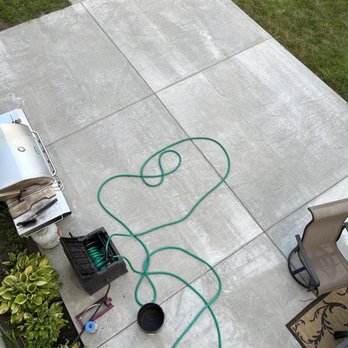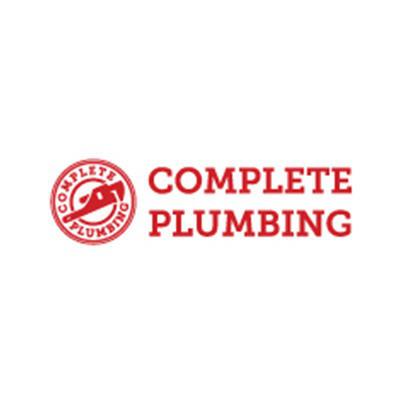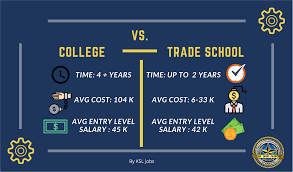
You have many advantages when you work in the HVAC, refrigeration and air conditioning industries. You can choose to be an installer, technician or salesperson, or even a manager. In addition, the industry is growing faster than average. This is good news for anyone looking to pursue a career in this booming field.
HVAC technicians are responsible of maintaining, repairing, or installing heating and/or air conditioning equipment in residential or commercial buildings. A variety of tools are used in their work, including pressure gauges and manometers. They may also be needed to provide emergency services. It can be very stressful for workers, who are frequently exposed to shocks and muscle strains. There is a need for more people to work on these systems, which will increase the demand for mechanics in the future.
HVAC offers many vocational and high school courses. These courses include math, physics, electronics and chemistry. These subjects will help students prepare for their HVAC education. This field is offered by many junior colleges. Those who want to go straight to work as an HVAC technician can begin an apprenticeship. An apprentice is a trainee who is usually paid at a lower wage than a fully-qualified mechanic.

HVAC mechanics may be experts in a particular area. An electrician is an electrician who installs components for heating and cooling equipment. The other types of HVAC mechanics are furnace installers, and oil burner mechanics. For most technicians to become certified, they need at least a few decades of experience.
HVAC is expected grow at a rate that is faster than the average growth for all occupations. There are many factors that drive this growth. For one, there are more regulations on energy efficiency and building retrofits. Tax incentives are also being offered to encourage installation of energy-efficient units. This has meant that there is a greater demand for people to install and maintain older equipment.
As a result of these factors, the number of jobs in this sector is predicted to grow rapidly over the next ten years. The HVAC industry is projected to create almost 50,000 additional jobs in the next ten year. It is a promising field for those looking for a job that pays well and offers career advancement opportunities.
All parts of the country will have work for refrigeration and air conditioning mechanics and installers. New York is an example of this, with 381,700 jobs predicted by the Bureau of Labor Statistics for 2026. This is due to continued construction of non-residential and residential buildings. Mechanics and installers can find work on construction sites, repair shops, or on individual homes.

To test basic competency in the HVAC industry, there are a number of exams. Some exams require knowledge of specific equipment while others require an extensive background in electrical codes. Depending on your locality, you may need to take a number of these exams to ensure that you are competent in your field.
FAQ
Is there a limit to the amount of money I can spend on the project?
No. No. However, you may be able to negotiate a lower price with the contractor.
What does my SCA include?
Your SCA will specify the exact scope of work that needs to be done, including how long it will take, what materials need to be used, what equipment is needed, and whether any special permits are required.
How much does it cost for you to apply for building permits?
It will vary depending on where you live and how complex your project is. It also depends on whether your application is for permission to construct or extend an existing house. You should expect to wait several months before everything is approved.
Is There Any Way That I Can Prepare For Negotiation Beforehand?
Yes!
There are many methods you can prepare for negotiation.
One way to do this is to put down the terms & conditions of the agreement
What are the payment terms for the service/contractor I am required to pay?
The service you are receiving will dictate the payment schedule. If you hire a contractor for a roof installation, payments would be made as soon as the work is completed. You might pay only after you receive and test the product if it is a product purchased from a supplier like a kitchen range cooker.
Statistics
- (1) Ascertain the extent to that offers are based on the payment of overtime and shift premiums; and (2) Negotiate contract prices or estimated costs without these premiums or obtain the requirement from other sources. (acquisition.gov)
- Reasonable late fees go up to 25% per year on unpaid sums. (lawdepot.com)
- (v) Place or places of performance of the prime contract and first-tier subcontracts estimated at $10 million or more, if known. (acquisition.gov)
- While we offer all our high-quality services at competitive prices, we know that many who need our services are on fixed incomes, so we offer a 10 percent discount for seniors and military members. (homeservicecontractorsinc.com)
- (3) The contracting officer may provide for a contract price adjustment based solely on a percentage rate determined by the contracting officer using a published economic indicator incorporated into the solicitation and resulting contract. (acquisition.gov)
External Links
How To
What should a service agreement include?
Every business relationship should have a Service Agreement (SA). It sets out what you expect from one another and how you intend to achieve these expectations. The SA also describes when and how you expect the other side to meet its contractual obligations.
These are the key components of a successful SA:
-
The scope of work and services required by both parties.
-
Details of payment terms including start date and end date for delivery of goods/services.
-
A project cost agreement.
-
Any additional costs like VAT etc.
-
Discuss any other matters.
-
Who will be held responsible for any problems that may arise on the job?
-
How to resolve disputes
-
What happens if one party breaches the contract.
-
What happens in case of dispute.
-
When does the contract take effect?
-
What happens if a party doesn't perform.
-
What time do you need to pay your invoices?
-
Who pays for expenses such as travel?
-
Where the money comes.
-
What happens if the client changes his mind about the project?
-
What happens when the supplier doesn’t show up.
-
Who has permission to view the site during construction
-
What happens if a customer cancels the contract?
-
What happens if a product is not as described?
-
What happens when the manufacturer refuses supply?
-
What happens if your equipment breaks down?
-
What happens if the project takes more time than anticipated?
-
What happens if the work isn’t completed within the stipulated time?
-
What happens to the project if it isn't up-to-standard?
-
What happens if the cost exceeds?
-
What happens to the materials if they are not delivered on-time?
-
What happens if the material arrives damaged?
-
What happens when the products don't meet standards?
-
What happens if the job gets cancelled before it is completed?
-
What happens when the company goes under?